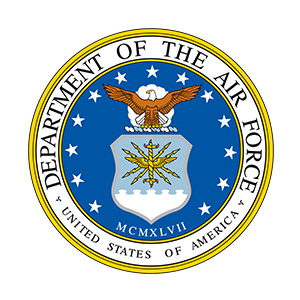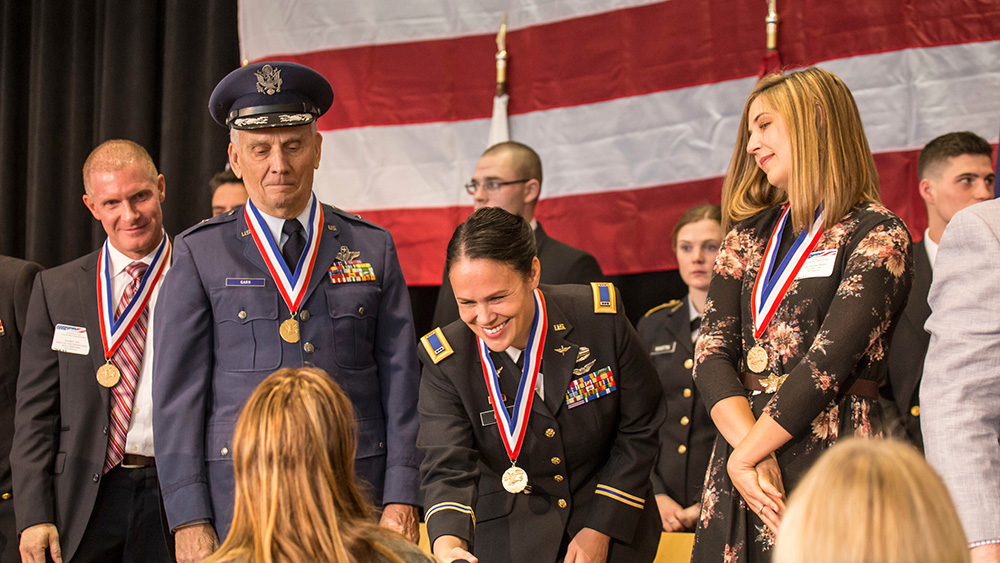ROY LEE GROVER
« Back to Honorees

Distinguished Flying Cross, Air Medal (3), and other awards
During the summer of 1940, Roy Lee Grover attended ground school at the Civilian Pilot Program at the University of Utah. After completing his sophomore year, he applied for pilot training in the Army Air Corps as war seemed eminent. After waiting months, his call came and he enlisted on November 1, 1941. Grover then began flight training at Visalia, California. He graduated, received his wings, and became a Second Lieutenant in the Army Air Corps on May 21, 1942. He was then deployed in August as a pilot with the 38th Bomb Group to prevent the feared Japanese invasion of Australia.
From Northern Australia the 38th Bomb Group began their bombing raids on the Japanese in New Guinea in September of 1942. As a copilot on his first combat mission, Grover saw puffs of black smoke around his plane that he could not explain. Then he heard what sounded like rocks being thrown against a tin roof. He soon realized it was shrapnel hitting his plane and that the Japanese were firing on him. “Why are they trying to kill me, I’m a nice guy, we’re all nice guys up here!” he thought, but that thought was short lived. “I realized it was either them or me, and I decided it was going to be them!”
One mission was very memorable to Grover. It was an attack on Japanese shipping at Wewak New Guinea September 2, 1943. As 16 attacking B25’s descended below the clouds, the bombers broke into two eight ship formations, with Grover leading the second group. Two enemy cargo ships were below unloading their cargo. The first set of bombers missed the largest cargo vessel so Grover dropped to deck level, silenced the ship’s machine guns, and then dropped his two 1,000 pound bombs a few seconds apart. One bomb hit the water and bounced over the ship. The second bomb hit the ship at the water line, setting it afire and sinking it. Grover was flying so low in this attack that he had to fly between the masts of the ship and brought the ship’s radio antenna home on his wing.
There was anti-aircraft fire and many enemy fighter aircraft protecting the ships during the attack. Eight Japanese fighters attacked Grover and his wing man. They shot down his wing man and then began focusing on Grover. He dropped to sea level so it would be more difficult to attack him. That left only attacks from his left and his right—the most effective ways to attack a B25. As they came in one at a time Grover turned the bomber into the attack and fought them off with his forward and upper turret guns. They attacked constantly as he headed out to sea and back to his base until the fighters slowly gave up as they were getting further from their base and running out of fuel. Grover’s bomber was called the’ Tokyo Sleeper’ and it came home filled with bullet holes and with the front machine gun controls shot out. Three of the attacking bombers were shot down on this mission, but the Tokyo Sleeper had sunk a large cargo ship and shot down two enemy fighters.
During his time in New Guinea, Grover flew 57 combat missions against the Japanese, and earned the Distinguished Flying Cross and three Air Medals. He returned to the United States in October of 1943 where he trained combat crews and flew transport missions in the U.S., Europe, and North Africa.
During his time in the military, Roy Lee Grover was a pilot, comptroller, deputy base commander, and management analyst at the Air Defense Command in Colorado. He retired in 1964, as a Lt. Colonel, and then worked in the aerospace industry as an operations research analyst.
Recalling his war time experiences, Grover said “Sometimes war in inevitable, but war is a terrible way to settle arguments between countries.”

